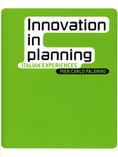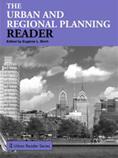inu study day Environment premi tesi di dottorato ecological networks safety & security urban growth premio gubbio 2018 local plans city parks city-regions collaborative urban design revelation identity social exclusion/integration events conferences public spaces ricerca open position Communication commerce design cartography fabrication
Innovation in planning. Italian experiences
Pier Carlo Palermo
In Italy, practices of spatial planning and urban development have undergone significant transformation in recent decades and above all during the '90s, despite the continuing influence of more traditional models and attitudes. A revision seems necessary for the country's modernisation, but this process does not yet seem complete and the results appear uncertain.
There has been a proliferation of new experiments, but they do not always represent real innovations able to guarantee quality and effectiveness. Critical reference to certain great Italian traditions may help to clarify the meaning and value offered by the most recent experiences. Perhaps more than elsewhere, in Italy there has been an attempt to unite the traditions of spatial planning and urban design. Today there seems to be a mature critical reflection on the excessively rigid and prescriptive conceptions of physical planning, and on the possibility to control transformations through urban architecture projects. On the other hand, these typically Italian traditions lead to a distincing from many international currents of planning theory, which to our eyes can seem too abstract and merely procedural.
The theory is that a critical review of Italian experiences in planning and physical designing can reveal an in some respects original approach of policy design, which seems to be capable of overcoming certain limitations in current planning and policy studies. In this phase in Italy we have a wide set of linked experiences in policy making and urban designing that could permorm a truly innovative function. However, these are still "trials of innvoation": an open process not without risks, requiring further consideration and responsibility for judgements and choices.
CONTENTS
I. Opening
Scenaries and figures
Guidelines
Trials
II. Themes and questions
Decline of the grand public project
Difficulties of some late-modern experiments
Reformist will and uncertainties
Interpretation of policies
Places and modes of innovation
II. Fields of experience
The union territory
Large area spatial planning
Local planning
Urbanism and planning
IV. Probing innovation
Governance, regulation and development
Vision, strategies and projects
Towards a new urbanism
References
ABOUT THE AUTHOR:
Pier Carlo Palermo has been dean of the Polytechnic of Milan's Architecture and Society Faculty since 2002, when he was already head of the Department of Architecture and Planning. He was formerly professor of Urban Planning at the University of Venice and Reggio Calabria. His main research interests include theory and history of urbanism, urban studies, spatial planning, and policy design. He has been working as planning consultant on programmes of national and international interest (EU programmes, Italian Ministries of Economics, Environment, Infrastructure, and others). On these themes he is the author of a dozen books. He has recently published Prove di innovazione. Nuove forme ed esperienze di governo del territorio in Italia, Milan, 2001; Il programma Urban e l'innovazione delle politiche urbane, Milan, 2002; Progetti integrati e sviluppo territoriale (with G. Pasqui), Rome, 2003 Trasformazioni e governo del territorio. Introduzione critica, Milan, 2004.
Related articles:




Planum
The Journal of Urbanism
ISSN 1723-0993
owned by
Istituto Nazionale di Urbanistica
published by
Planum Association
ISSN 1723-0993 | Registered at Court of Rome 4/12/2001, num. 514/2001
Web site realized by ChannelWeb & Planum Association | Powered by BEdita 3


